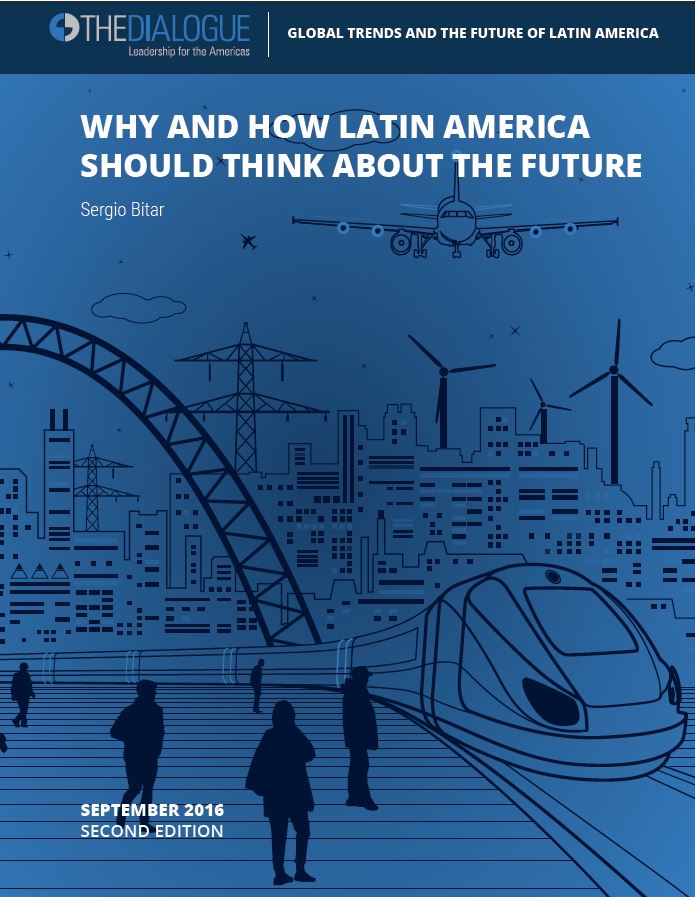Latin America & the US: Looking Towards 2020
The ongoing and unprecedented speed of global change demands a new responsibility from Latin American countries.
The Inter-American Dialogue continues to give priority attention to raising awareness of global trends analysis and how future scenarios will affect Latin America. For this reason, I am pleased to present this updated version of the Dialogue’s report on why and how Latin America should think about the future. Written by Dialogue senior fellow Sergio Bitar, who directs our initiative on global trends, the current edition incorporates new elements and shifts in global trends that present new opportunities for Latin American countries. Since the original was published in December 2013, several changes stand out:
There have also been positive signs on security, such as US political agreements with Iran and Cuba, and governability, thanks to the adoption of the Sustainable Development Goals by the United Nations. This edition explores new areas of opportunity for Latin America, including rising water use for food production, new industrialization and innovation, renewable energy, and institution building. In fact, institution building emerges as an even greater challenge for combating increased corruption and channeling amplified demands for participation and equality.
As this report makes clear, Latin America’s future is inextricably connected to developments taking place beyond the borders of individual nations.
While a number of governments, businesses, and civil society organizations in Europe, the United States, and Asia are addressing this new reality by carrying out studies of long-term political, economic, social, and security scenarios to inform policy decisions, comparable efforts in Latin America lag behind, as the region’s policymakers remain primarily focused on short-term domestic agendas. Too few institutions in the region are carrying out the data collection, research, or analysis needed to understand critical trends at the global level, and incorporate them into policy thinking.
Addressing such a challenge can greatly improve the outlook for the region’s economic, social, and
environmental welfare and security. Against this backdrop, in 2011, with support of the Inter-American
Development Bank, the Inter-American Dialogue launched its Long-Term Global Trends Initiative. The program seeks to foster the practice and culture of long-term strategic thinking in Latin America and build the capacity of regional experts and institutions to carry out policy-relevant, forward-looking studies. In 2015, the project produced a regularly updated database of global trends reports and periodically issues newsletters addressing future scenarios and how to organize institutional and human capacity in Latin American countries in response.
This new report provides an original and comprehensive framework for achieving these objectives. Drawing on decades of policy experience in roles ranging from senator to minister in three different presidential administrations in Chile, Sergio Bitar makes a compelling argument for long-term global thinking in Latin America and reviews six global trends to which policymakers should pay particular attention. He concludes by proposing steps that Latin America can take to confront challenges and take advantage of opportunities in five key areas: democratic governance, economic competitiveness, social inclusion, geopolitics, and sustainable development.
We hope that this new report will help spur constructive debate about Latin America’s future among policymakers, business leaders, and members of civil society. We are grateful to the Inter-American Development Bank for its crucial support of this initiative.
Michael Shifter,
President
The ongoing and unprecedented speed of global change demands a new responsibility from Latin American countries.
The future of Latin America will be directly affected by its responses to changing global trends today.
The second newsletter of the Dialogue’s Global Trends and Latin America’s Future Initiative identifies key challenges and opportunities for Latin America and discusses the relationship between global trends and education policy.

 Video
Video
